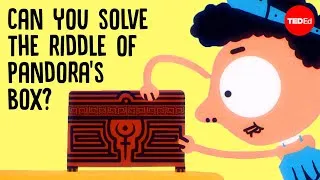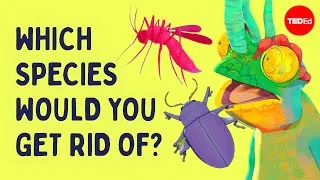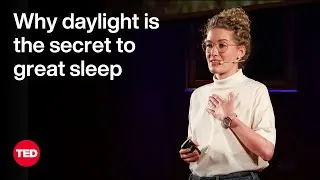請雙擊下方英文字幕播放視頻。
譯者: Ann Chen
審譯者: Pui-Ching Siu
00:06
The average 20 year old knows
between 27,000 and 52,000 different words.
0
6814
7231
一般 20 歲的人知道
27,000 至 52,000 個不同的字。
00:14
By age 60, that number averages
between 35,000 and 56,000.
1
14045
6008
60 歲前,該數目一般在
35,000 至 56,000 之間。
00:20
Spoken out loud, most of these words
last less than a second.
2
20053
4277
如果將它們唸出來,
大部份的字不用花到一秒鐘。
00:24
So with every word, the brain
has a quick decision to make:
3
24330
4205
聽到每個字時,
大腦都必須快速做決定:
00:28
which of those thousands of options
matches the signal?
4
28535
3700
上千個選項中的哪一個
吻合你聽到的聲音?
00:32
About 98% of the time, the brain chooses
the correct word.
5
32235
4110
大約 98% 的時間,
大腦會選出正確的字。
00:36
But how?
6
36345
1130
但大腦如何做到呢?
00:37
Speech comprehension is different
from reading comprehension,
7
37475
3640
語音理解不同於閱讀理解,
00:41
but it’s similar to sign language
comprehension—
8
41115
3260
但類似於手語理解──
00:44
though spoken word recognition
has been studied more than sign language.
9
44375
4486
雖然人們對口語辨識的
研究比手語多。
00:48
The key to our ability
to understand speech
10
48861
2560
我們能夠理解語音的關鍵
00:51
is the brain’s role
as a parallel processor,
11
51421
3270
在於大腦能夠並行處理,
00:54
meaning that it can do multiple
different things at the same time.
12
54691
4000
意思是它可以同時做多種不同的事。
00:58
Most theories assume
that each word we know
13
58691
2610
大多數理論假設
我們所知道的每個字
01:01
is represented by a separate processing
unit that has just one job:
14
61301
4470
分別由只負責一項工作的
處理單元來代表:
01:05
to assess the likelihood of incoming
speech matching that particular word.
15
65771
5160
該工作是評估傳入語音
與該特定單字匹配的可能性。
01:10
In the context of the brain,
the processing unit that represents a word
16
70931
4208
對大腦來說,代表單字的處理單元
01:15
is likely a pattern of firing activity
across a group of neurons
17
75139
4657
很可能是大腦皮層中
一組神經元的激發活動。
01:19
in the brain’s cortex.
18
79796
1890
01:21
When we hear the beginning of a word,
19
81686
1820
當聽到一個字的開頭音節時,
01:23
several thousand such units
may become active,
20
83506
3780
可能會有幾千個處理單位活躍起來,
01:27
because with just the beginning
of a word,
21
87286
2066
因為當只有字的開頭音節,
01:29
there are many possible matches.
22
89352
2180
會有很多可能的匹配。
01:31
Then, as the word goes on,
more and more units register
23
91532
4003
繼續講字的其他音節時,
更多的單元會發現
缺乏某個重要的訊息,
01:35
that some vital piece of information
is missing and lose activity.
24
95535
5131
隨之失去了活性。
01:40
Possibly well before the end of the word,
25
100666
2460
可能在字的結尾前,
01:43
just one firing pattern remains active,
corresponding to one word.
26
103126
4964
只有一個激活模式保持活躍,
並對應於一個字,
01:48
This is called the "recognition point."
27
108090
2738
這就是所謂的「識別點」。
01:50
In the process of honing in on one word,
28
110828
2820
在琢磨一個字的過程中,
01:53
the active units suppress
the activity of others,
29
113648
3070
活躍的單位會抑制其他單位的活動,
01:56
saving vital milliseconds.
30
116718
2120
從而省下重要的毫秒。
01:58
Most people can comprehend
up to about 8 syllables per second.
31
118838
4797
大多數人每秒最多可理解 8 個音節。
02:03
Yet, the goal is not only
to recognize the word,
32
123635
3330
可是目標不只是辨識那個字,
02:06
but also to access its stored meaning.
33
126965
3450
還要找出內在含義。
02:10
The brain accesses many possible meanings
at the same time,
34
130415
3780
在字還未完全辨識出之前,
02:14
before the word has been fully identified.
35
134195
2680
大腦會同時找出許多可能的字義。
02:16
We know this from studies which show
that even upon hearing a word fragment—
36
136875
5143
我們從研究中瞭解到,
即使一聽到字的片段──
02:22
like "cap"—
37
142018
1280
譬如 「首」──
02:23
listeners will start to register
multiple possible meanings,
38
143298
3500
聽者也會開始找多個可能的字義,
02:26
like captain or capital,
before the full word emerges.
39
146798
5172
比如「首領」或「首都」,
在整個字唸完前就會這麼做。
02:31
This suggests that every time
we hear a word
40
151970
3150
這間接說明我們每聽到一個字時,
02:35
there’s a brief explosion of meanings
in our minds,
41
155120
3360
腦中會很快地迸出許多字義,
02:38
and by the recognition point the brain
has settled on one interpretation.
42
158480
4811
到達辨識點時,
大腦已選中一個字義。
02:43
The recognition process moves
more rapidly
43
163291
2930
如果提供有上下文的句子,
02:46
with a sentence that gives us context
than in a random string of words.
44
166221
4600
而不是隨機的一串單字時,
識別過程的速度會加快。
02:50
Context also helps guide us towards
the intended meaning of words
45
170821
4188
上下文也會導引我們瞭解
具有多種解釋的字的正確意義。
02:55
with multiple interpretations,
like "bat," or "crane,"
46
175009
4000
例如「蝙蝠(球棒)」
或「吊車(鶴)」,
02:59
or in cases of homophones
like "no" or "know."
47
179009
4000
或在同音字的情況下,
例如 “no” 或是 “know”。
03:03
For multilingual people, the language
they are listening to is another cue,
48
183009
4384
對多種語言的人而言,
他們正在聽的語言是另一種提示,
03:07
used to eliminate potential words
that don’t match the language context.
49
187393
5313
能夠去除不符合這語言的可能單字。
03:12
So, what about adding completely
new words to this system?
50
192706
4000
那麼,如果要在此系統中
加入全新的字呢?
03:16
Even as adults, we may come across
a new word every few days.
51
196706
4000
即使是成年人,也可能每隔幾天
就會遇到一個新的字。
03:20
But if every word is represented
as a fine-tuned pattern of activity
52
200706
4403
但是,如果每個字都視為
一種精細活動模式,
03:25
distributed over many neurons,
53
205109
2330
且分佈在許多神經元上,
03:27
how do we prevent new words
from overwriting old ones?
54
207439
4553
我們如何避免新的字覆蓋舊的字呢?
03:31
We think that to avoid this problem,
55
211992
2330
我們認為,為避免這個問題,
03:34
new words are initially stored in a part
of the brain called the hippocampus,
56
214322
4763
新的字會先存在大腦海馬區中,
03:39
well away from the main store
of words in the cortex,
57
219085
3608
離大腦皮層中的
主要單字存儲區很遠,
03:42
so they don’t share neurons
with others words.
58
222693
3370
所以它們不與其他單字共用神經元。
03:46
Then, over multiple nights of sleep,
59
226063
3010
經由多個夜晚的睡眠,
03:49
the new words gradually transfer
over and interweave with old ones.
60
229073
5397
新字逐漸轉移過來,
與舊字交織在一起。
03:54
Researchers think this gradual
acquisition process
61
234470
3520
研究人員認為,
這種緩慢的新字獲得過程
03:57
helps avoid disrupting existing words.
62
237990
3364
有助於避免破壞現有單字。
04:01
So in the daytime,
63
241354
1420
所以在白天聊天時,
04:02
unconscious activity generates explosions
of meaning as we chat away.
64
242774
4530
無意識的神經元活動
會迸出許多字義來;
04:07
At night, we rest, but our brains
are busy integrating new knowledge
65
247304
5001
到了晚上,我們休息,
可是大腦忙著將新知識
整合到單字網絡中。
04:12
into the word network.
66
252305
1820
04:14
When we wake up, this process ensures
that we’re ready
67
254125
3530
這個過程確保我們醒來時,
04:17
for the ever-changing world of language.
68
257596
3100
已經為不斷變化的
語言世界做好準備。
New videos
關於本網站
本網站將向您介紹對學習英語有用的 YouTube 視頻。 您將看到來自世界各地的一流教師教授的英語課程。 雙擊每個視頻頁面上顯示的英文字幕,從那裡播放視頻。 字幕與視頻播放同步滾動。 如果您有任何意見或要求,請使用此聯繫表與我們聯繫。







